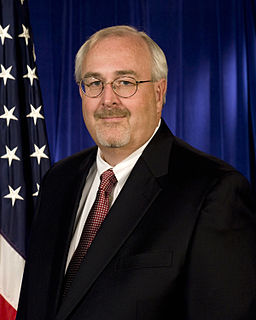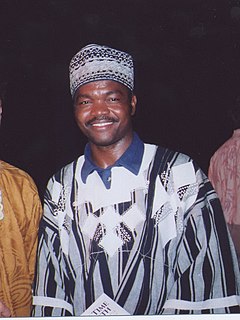Top 871 Historically Quotes & Sayings - Page 15
Explore popular Historically quotes.
Last updated on September 19, 2024.
They were indeed what was known as 'old money', which meant that it had been made so long ago that the black deeds which had originally filled the coffers were now historically irrelevant. Funny, that: a brigand for a father was something you kept quiet about, but a slave-taking pirate for a great-great-great-grandfather was something to boast of over the port. Time turned the evil bastards into rogues, and rogue was a word with a twinkle in its eye and nothing to be ashamed of.
Historically, many of the great names in alpine climbing seemed to have just gone climbing as training. In fact, the model alpinist has often portrayed himself in literature as a half-crazed nonconformist, living life on the edge every moment he's sober enough to climb. It is true that amazing feats of skill and daring have been accomplished using this rather random approach. For some climbers that "life on the edge" approach may be the only way they can accomplish these feats, but there are far better methods to prepare for the challenges of alpine climbing.
I think we're in a really interesting moment for women globally just in terms of, like, historically, I think we're in an interesting moment for women. Because, it's important to remember, there have always been funny, funny women. Mae West was real funny. Marilyn Monroe was in one of the greatest comedies, Some Like It Hot, ever made. I mean, it's not like we're lacking. I just think the percentage of women in positions of power in all aspects of our culture is improving and women are standing up and demanding to be heard.
Historically, the argument is we stole the country from the Indians. America stole the labor of African Americans for over 200 years under slavery. America took half of Mexico by force in the Mexican War. American foreign policy, the progressives say it's based on theft. Why? Because look, America is very active in the Middle East. Why? The Middle East has oil. Notice that America doesn't get involved in Haiti or Rwanda because they don't have any oil.
Poetry is perhaps the oldest art form. We can go back to an age-old idea of naming things, the Adamic impulse - to give something a name has always been an immensely powerful thing. To name something is to own it, to capture it. A poem is still a kind of spell, an incantation. Historically, a poem also invoked: it was a blessing, or a curse, or a charm. It had a motile power, was able to summon something into being. A poem is a special kind of speech-act. In a good poem there's the trance-like effect of language in its most concentrated, naked form.
Anyone who clings to the historically untrue-and thoroughly immoral-doctrine that, 'violence never settles anything' I would advise to conjure the ghosts of Napoleon Bonaparte and the Duke of Wellington and let them debate it. The ghost of Hitler could referee, and the jury might well be the Dodo, the Great Auk and the Passenger Pigeon. Violence, naked force, has settled more issues in history than has any other factor, and the contrary opinion is wishful thinking at its worst. Breeds that forget this basic truth have always paid for it with their lives and freedom.
There are many things that black women can continue to do to help black folk. First, black women have historically been among the most vocal advocates for equality in our community. We must take full advantage of such courage by continuing to combat the sexism in our communities. Black women, whether in church, or hip-hop, don't receive their just due. Second, when black women are in charge of child-rearing, they must make ever so sure to raise black children who respect both men and women, and who root out the malevolent beliefs about women that shatter our culture.
If you go back in history, the most deadly parts of the hurricane has been water. Wind is actually not as deadly as people think it is, although they tend to look at the wind field and look at that as a risk. What has historically killed people in past from hurricanes has been water, storm surge. That Hurricane Hugo's coastal flooding has been the leading cause of death. And that's why we're so adamant about getting people to evacuate. We spend a lot of time and resources to map those areas ahead of time. But it only works if people heed those evacuations and go to higher ground.
Truth is found neither in Marxism nor in traditional capitalism. Each represents a partial truth. Historically capitalism failed to see the truth in collective enterprise, and Marxism failed to see the truth in individual enterprise. Nineteenth century capitalism failed to see that life is social and Marxism failed and still fails to see that life is individual and personal. The Kingdom of God is neither the thesis of individual enterprise nor the antithesis of collective enterprise, but a synthesis which reconciles the truths of both.
The strange, wonderful stories of Doctor Olaf van Schuler's Brain introduce us to the tremendously gifted Kirsten Menger-Anderson, a writer whose subject is nothing less than the diagnosis and cure of the human malady. We follow twelve generations of New York City's Steenwycks family through their forays into phrenology, mesmerism, radium therapy and similar misadventures, a historically rich narrative that Menger-Anderson delivers in striking, elegant prose and with a sure eye for detail. This is a remarkable debut by a writer to watch.
One of the things that makes me the most nervous is that the Middle East has historically had a sense of predictability. You may have a terrorist incident or you may have a revisionist regime like the Iranians, but on the whole, the region is twenty countries. On the whole, you go to bed and you wake up and you have a pretty good idea that most of those twenty are doing just fine, you don't have to pay attention to them. There's some stuff going on but you don't have to worry about a governmental overthrow that will suddenly force you to evacuate your embassies.
Historically different groups find different things in each comics, as with *X-Men*. Gay readers find parallels to living a closeted lifestyle or choosing to come out and be openly gay. Black readers find a relevance to their lives growing up in America as a black guy. Picked-on brainy kids find a metaphor for being an outsider. It's a simple enough, and direct enough metaphor that it has different shades for different people. And so each reader to some degree gets out of it what they bring to it. That's one of the things I think that makes *X-Men* such a strong property.
[Michael] Chabon, who is himself a brash and playful and ebullient genre-bender, writes about how our idea of what constitutes literary fiction is a very narrow idea that, world-historically, evolved over the last sixty or seventy years or so - that until the rise of that kind of third-person-limited, middle-aged-white-guy-experiencing-enlightenment story as in some way the epitome of literary fiction - before that all kinds of crazy things that we would now define as belonging to genre were part of the literary canon.
I often went to Catholic mass or Eucharist at the Episcopal church, nourished by the symbol and power of this profound feeding ritual. It never occurred to me how odd it was that women, who have presided over the domain of food and feeding for thousands of years, were historically and routinely barred from presiding over it in a spiritual context. And when the priest held out the host and said, "This is my body, given for you," not once did I recognize that it is women in the act of breastfeeding who most truly embody those words and who are also most excluded from ritually saying them.
If one is going to offer children stories that underneath the story must be something that will inform, stimulate and guide, I love to be on board. I think anything that resonates with history, as does The Jungle Book and Watership Down, reflects patterns of behavior, power struggles, deprivation, migration, survival, joy, love, betrayal, and all of these things. It's tragic that children are encouraged to ignore history. We ignore history and any literature that is historically based in history. Even though both of those films involved animals, of course they reflect human behavior.
Historically the customs and traditions of day-to-day life in Africa have been dismissed by Western cultural anthropologists as primitive, chaotic, pagan activities that should be replaced by Christianity, the only civilized religion. The West has also long assumed that it should convert tribal cultures to literacy, which is to say an entirely different way of looking at the world, of living in the world. Most Africans who have achieved a comfortable Western lifestyle are Christian. Why? Because it comes with the package: Christian-ity, literacy, and a material lifestyle all come together.
There may have been somewhere, as a few eighteenth-century philosophers dreamed, a group of peaceful men who got together one evening after work and drew up a Social Contract to form the state. But nobody has been able to find an actual record of it. Practically all the governments whose origins are historically established were the result of conquest-of one tribe by another, one city by another, one people by another. Of course there have been constitutional conventions, but they merely changed the working rules of governments already in being.
The Iraqi Baath Socialist Party was modelled in large part on admiration for European National Socialist and Fascist movements, hoped to emulate them especially in their nationalism against the West. But mutated by Saddam Hussein it became also one that very, very much admired, and grew a special moustache in admiration of the work of Yosif Vissarionovitch Dzugashvili, the great Georgian known to us historically as Stalin. So you had him in modern Iraq, a regime in our own time, that was openly, directly modelled upon the two most extreme examples of European totalitarianism.
Free software is part of a broader phenomenon, which is a shift toward recognizing the value of shared work. Historically, shared stuff had a very bad name. The reputation was that people always abused shared things, and in the physical world, something that is shared and abused becomes worthless. In the digital world, I think we have the inverse effect, where something that is shared can become more valuable than something that is closely held, as long as it is both shared and contributed to by everybody who is sharing in it.
How will I ever get out of this labyrinth!" In reality, "How will I ever get out of this labyrinth!" were probably not Simon Bolivar's last words (although he did, historically, say them). His last words may have been "Jose! Bring the luggage. They do not want us here." The significant source for "How will I ever get out of this labyrinth!" is also Alaska's source, Gabriel Garcia Marquez's The General in his Labyrinth.
Central banks are choosing to increase their gold holdings as a percentage of total reserves. They obviously think there is a reason to do that. It doesn't make sense to back up one currency with a hoard of other paper currencies. There needs to be a real anchor there. I think that central banks are well behind the curve. If you look at the percentage of above-ground gold controlled by central banks, it's historically low. Hence the fact that central banks are trying to increase their holdings. They've got a long way to go to get where they need to be.
The very word "secrecy" is repugnant in a free and open society; and we are as a people inherently and historically opposed to secret societies, to secret oaths and to secret proceedings. We decided long ago that the dangers of excessive and unwarranted concealment of pertinent facts far outweighed the dangers which are cited to justify it. Even today, there is little value in opposing the threat of a closed society by imitating its arbitrary restrictions. Even today, there is little value in insuring the survival of our nation if our traditions do not survive with it.
Historically, the Old Charges fall into three groups. The first comprises the two earliest versions, the Regius MS of c.1390 and the Cook MS of c.1420...The second, and largest, group begins with the Grand Lodge No. 1 MS, dated 25 December 1583, and covers all the versions datable before the formation of the premier Grand Lodge in 1717. The third group comprises manuscript and printed versions produced after 1717, the majority of which appear to have been produced as antiquarian curiosities.
Ideas about mothers have swung historically with the roles of women. When women were needed to work the fields or shops, experts claimed that children didn't need them much. Mothers, who might be too soft and sentimental, could even be bad for children's character development. But when men left home during the Industrial Revolution to work elsewhere, women were "needed" at home. The cult of domesticity and motherhood became a virtue that kept women in their place.
Certainly one of the chief guarantees of freedom under any government, no matter how popular and respected, is the right of citizens to keep and bear arms. This is not to say that firearms should not be very carefully used and that definite safety rules of precaution should not be taught and enforced. But the right of citizens to bear arms is just one more guarantee against arbitrary government, and one more safeguard against tyranny which now appears remote in America, but which historically has proved to be always possible.
Historically, measures initially directed at foreign nationals have subsequently been extended to citizens. What happens is foreign nationals are the easiest targets and most vulnerable targets, so they're the initial targets. But government officials, once you give them a certain kind of power over individuals, they get used to it and almost inevitably seek out ways to extend it. You will see that virtually every form of repressive government measure that has been employed in the United States against citizens started out as an antialien measure and was then extended to citizens.
If we wish to know about a man, we ask 'what is his story--his real, inmost story?'--for each of us is a biography, a story. Each of us is a singular narrative, which is constructed, continually, unconsciously, by, through, and in us--through our perceptions, our feelings, our thoughts, our actions; and, not least, our discourse, our spoken narrations. Biologically, physiologically, we are not so different from each other; historically, as narratives--we are each of us unique.
It's important to teach students about the reality of the system, that it is in fact the case that they are being targeted unfairly, that the rules have been set up in a way that authorize unfair treatment of them, and how difficult it is to challenge these laws in the courts. We need to teach them how our politics have changed in recent years, how there has been, in fact, a backlash. But we need to couple that information with stories of how people in the past have challenged these kinds of injustices, and the role that youth have played historically in those struggles.
Historically, labor unions arose when people had gotten a taste of a different lifestyle and were willing to pay a lot more for their basic livelihood and had gotten into a fix they couldn't get out of - because they had accepted the unacceptable to begin with. Accepting something you have to form a labor union to fight after the fact only tells me that people were acting against their own best (or even good) interests for a long time. I don't see any rational, coherent explanation for this sort of behavior in humans, but it's all over the place.
Both Kant and Fichte thought of traditions of revealed religion as ways of symbolically (that is, with aesthetic emotional power) thinking about our moral condition. Both thought that religion would become more and not less powerful, emotionally and morally, if the claims of scriptures and religious teachings were taken symbolically rather than literally (whatever 'literally' might mean in the case of claims that are either nonsensical or outdated or historically unsupportable if taken as metaphysical or historical assertions).
What I'm interested in exploring with Clark Kent is when you have the power to do something that goes beyond what you think is the right thing to do and the difficulty of that. Meaning, to be Superman also means to withhold a lot of power. He could reshape the world however he thinks it should be. But Superman doesn't, historically, do those things. He allows a certain level of self-governing and a certain level of independence, I think out of an admiration for humanity. Because he's inspired by the best in us and he challenges us to inspire each other to be the best that we can be.






























